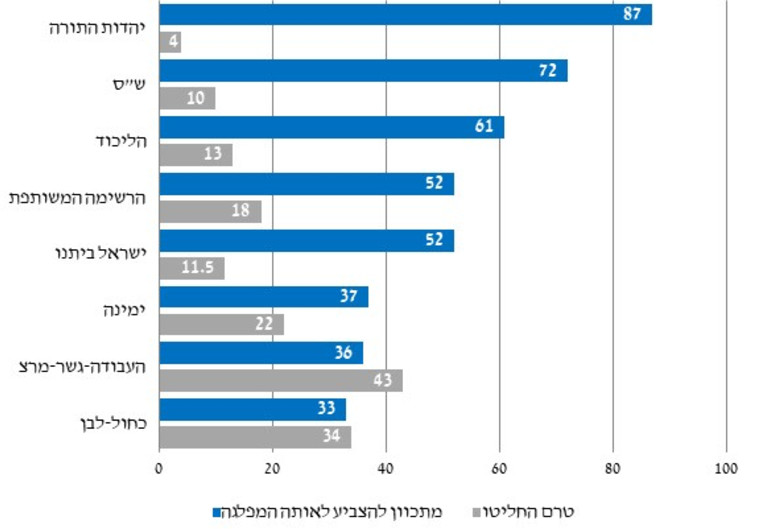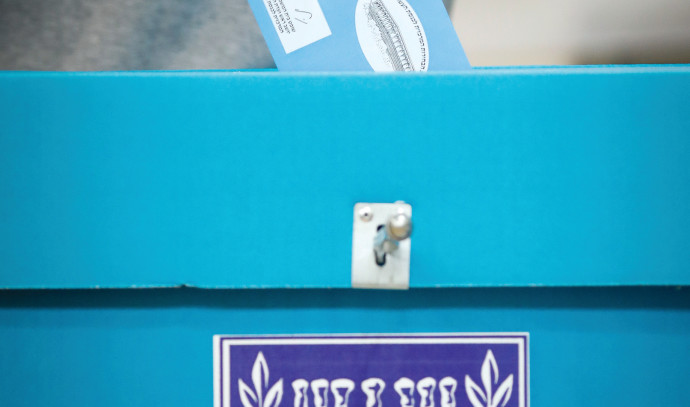The Israel Democracy Institute published today (Sunday) the Israeli Voice Index for January 2021. The survey interviewed 605 men and women in the Hebrew language and 300 in the Arabic language, which constitute a representative national sample of the entire adult population in Israel aged 18 and over.
The survey shows that 74% of the Israeli public support taking legal and budgetary measures against ultra-Orthodox elements who issue directives and permits in violation of the government’s guidelines for combating the corona plague. It is interesting to see that more than a quarter (27%) of those who define themselves as ultra-Orthodox also support these measures. In the other groups on the ultra-Orthodox-secular continuum, a large majority supports these measures.
The highest rate in the public (41%) believes that the force used by the police against violating the guidelines among the ultra-Orthodox was too weak. About a third believe that the force exerted hit the violations, while about 17% estimate that it was too strong.
A bus was set on fire by protesters in Bnei Brak. (Photo: David Keshet)
When it comes to the current election campaign, a majority (58%) of the Jewish public already knows which party they will vote for. The difference between the political camps is large: while on the right there is a solid majority that is sure of his preference (69%), less than half of those belonging to the left camp (45%) and only 41% of center voters are confident or fairly sure who to vote for next March. Among the Arab public, only 42% are sure or fairly sure which party they will vote for. 15% of Arabs indicated that they would not vote at all, compared to 3% of Jews who indicated this. Women are less confident about who they will vote for: 64% of Jewish men compared to 53% of Jewish women, and 49% of Arab men compared to 36% of Arab women.
- 2021 Elections: All the polls, articles and interpretations of leading reporters on the Maariv website
A large majority of those who voted for the ultra-Orthodox parties indicated that they would also vote for them in the upcoming elections (Torah Judaism – 87%; Shas 72%), as well as among Likud voters (61%), over half of the joint list voters and Yisrael Beiteinu, 37% Voters on the right, and about a third of the voters of the two center-left parties split.Among those who voted in the recent elections for the blue-and-white parties and Labor-Meretz Bridge stands out the high percentage of those who have not yet decided who to vote in the upcoming elections.
 Polling poll (Photo: Israel Democracy Institute)
Polling poll (Photo: Israel Democracy Institute)34% expressed confidence in Prime Minister Netanyahu in the context of his performance in the corona crisis, a slight decrease compared to the measurement two months ago. The prime minister’s trust in the Jewish public is much higher than the level of trust in the Arab public (38% and 17%, respectively). Confidence in Finance Minister Israel Katz in the context of the corona crisis is even lower – only 23% expressed enough or a lot of confidence in it.
The public gave a good score to the health system for managing the vaccination campaign – two thirds of the Israeli public give the health system a good or excellent score. Only 11% give this system a bad to bad score on the operation of the operation. In contrast to 72% of the Jewish public who give a good or excellent score to the health system for administering the vaccination campaign, only 44% of the Arabs give these scores.
The riots on Capitol Hill in the US – soon in Israel? Over a third (37%) of the Israeli public believe that there is a high chance that political violence will take place in Israel during the election campaign that will lead to injury and even death. Half of Israelis think that the chances are low.
